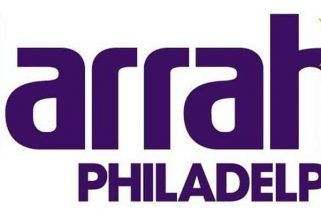Legal Online Poker in Delaware

“Is online poker legal in Delaware?” That’ll be the main focus of this article in which we’ll discuss the laws pertaining to online poker in Delaware and the effect of the changes that these laws went through over time.
We will also discuss who is in charge of online gambling in Delaware, who may legally operate online gambling, the specifics of some of the laws as they pertain to online poker and other games, and the economic situation of gambling in Delaware in general and online poker in particular. By the end of the article, readers should have a better idea of the situation in Delaware as it currently stands, as of January 4th, 2018.
While Delaware’s gambling laws may initially sound confusing, this article will explain, in a layperson’s terms, how the laws work. Please note that nothing in this article is meant to construe or replace qualified legal advice – the text provided is intended for educational purposes only.
Delaware Online Poker Gambling Laws
Laws about gambling are in some ways contradictory in Delaware. While gambling itself, apart from the state lottery, charitable gambling and some race track options is prohibited, Delaware’s laws do not have a clear definition as to what ‘gambling’ is, so their law about how people may not own a ‘gambling device’ is confusing and difficult to apply, and it cannot be ascertained from this alone whether a laptop that is used to access online poker is a ‘gambling device’.
In apparent contrast to this, the state has explicitly authorized three ‘racinos’ (horse-racing stadiums that incorporate casinos) to include slot machines, and table games such as poker, roulette, and craps. These same three racinos may, as of 2013, also host online gambling, including online poker.
What a layperson can take from this, in the end, is that in Delaware, what is commonly understood to be ‘gambling’ is illegal unless it is otherwise specified to be legal, and licensed as such. As a result, a surprising variety of types of gambling are allowed in Delaware – these being casino gambling, charity gambling, horse racing, online gambling, casinos, the state lottery, bingo, poker, sports betting and even social gambling.
However, each of these types of gambling are specifically authorized and licensed to certain parties, except social gambling, which is technically illegal but actually has a legal precedent that fully supported not-for-profit social gambling. Two forms of gambling that are thus illegal are daily fantasy sports and tribal gambling.
All of this is likely due to Delaware’s long history as a gambling state, and its proximity to New Jersey, New York, Pennsylvania and Maryland, all of which have a significant number of their own gamblers.
Delaware is the second smallest state in the US, but it has a high proportion of gamblers to support its seven thousand-plus slot machines and its 146 table-based games. So, paradoxically, Delaware is both a very liberal and a very restrictive state when it comes to gambling.
So, can you play online poker in Delaware? Yes, you can, provided that you are over 21 years of age, but you may not legally play on offshore sites. This leaves you with three Delaware poker online operators to choose from – the three racinos: Harrington Racecourse Online, Delaware Park Online, and Dover Downs Online, all of which use 888Casino and 888Poker software from 888 Holdings.
While this effectively causes all three user interfaces to resemble one another strongly, it does create the advantage of being able to play games with and against people in Nevada, since 888 Poker is extremely popular there, and there is a legal agreement between the two states, which allows players physically located in either state at the time of play to join together.
Legal Timeline of Gambling in Delaware
In 1933, Delaware instituted its Racing Commission, and six years later, Delaware Park became the first horse racing stadium offering legal gambling in Delaware. Harrington Raceway became the second in 1946, and Dover Downs opened in 1969. By 1974, the State Lottery was approved. In 1992, the federal government outlawed sports betting, but was also forced to allow Delaware to continue its sports betting since it was already legal at the time of the law change.
In 1994, the 3 racing stadiums were allowed to add slot machines to their premises, making them ‘racinos’. As you can see, the three racinos in Delaware form an important part of the history of gambling in the state, because these are the only three licensees for online gambling, as well as the only three places that may host casino tables and slot machines in the state.
In the year 2011, the Department of Justice decided to clarify a law named the Wire Act, which had been in effect since 1961. The Wire Act originally prescribed that electronic equipment was not allowed to serve the function of transmitting money across state lines that was being used to support sports betting. The law effectively prevented individual states from allowing online gambling.
But in 2011, the Department clarified and confirmed that the Wire Act did not apply to any form of online gambling that didn’t specifically bet on the results of sporting events. This meant that casino-style online gambling, including poker, was now within the domain of states to legislate on their own. As a result, Delaware set its own online poker gambling laws.
By June 28th, 2012, Delaware Governor Jack Markell had signed House Bill 333, also known as the Delaware Gaming Competitiveness Act of 2012, into law. The bill had passed through the Delaware Senate, with 14 voting yes and 6 no on the previous day. The bill granted the State Lottery the oversight of online gambling. The onus is on the State Lottery director to ensure that the location and identity of players is verified, account security is maintained, no-one under 21 joins the game, and that advertisements are shown that offer support to individuals who gamble too much.
Online game deposits can be done by bank transfer, or with a credit card, whereas withdrawals can be completed by bank transfer or through a check. Players may have accounts with different operators simultaneously, but may not use more than one account at the same time. Players are not allowed to transfer money between their casino accounts. There are substantial provisions for dispute resolution available.
On February 25th, 2014, the aforementioned Governor Markell and Governor Sandoval of Nevada decided to co-sign an agreement for which Delaware-located and Nevada-located players could join the same poker games, and play together. The contract was set out so that other states could join too when they were ready. Surprisingly, New Jersey has not yet signed on, and it is likely that Pennsylvania will too some time in 2018.
By March 24th, 2015, Delaware and Nevada poker players were finally able to join each other using the 888 Poker platform, which was successful at increasing player counts.
Economic Details of Gambling in Delaware
The racinos are obliged to pay the state a rate of 29.4 percent on table gaming and online gambling revenue. Relative to the rest of the country, this is a rather high tax rate, especially when compared to nearby New Jersey, which only charges 9.25 percent. This may divert some of the people who may have gone to gamble in Delaware, to New Jersey instead.
Delaware Senator Brian Bushweller is one person that wants to see lower taxes for casinos in order to help Delaware poker online to be more competitive, along with other forms of casino gaming.
Moody’s warned Delaware that its predicted $9 million from tax proceeds in their first fiscal year of online gaming was optimistic. Indeed, this turned out to be a radically optimistic prediction, because the total revenue earned as a result of online gambling did not even reach this amount – it only reached $1.4 million.
However, in 2016, Delaware casinos collectively earned $3 million from online gambling, making 2016 a significantly more fruitful year for the state, as it was a 62 percent increase from the year before, in which Delaware won only $1.8 million. These figures represent a tiny proportion of Delaware’s total gambling revenue (0.3 percent if 2016’s figure is used), which presently averages $1 billion and brings the state $150 million in taxes.
While this may not sound like much, Delaware actually only has about 952,000 residents, which means that each adult eligible to gamble brings in approximately $183 to the state on average, whether or not they actually gamble. Any future predictions of Delaware’s online gambling revenue should be cautious and take the aforementioned figures into account.













